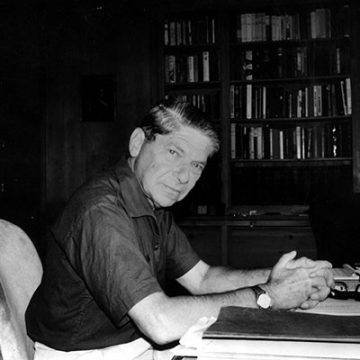Theodore Dalrymple in The City Journal (2007 issue):
 Someone who had known Arthur Koestler told me a little story about him. Koestler was playing Scrabble with his wife, and he put the word VINCE down on the board.
Someone who had known Arthur Koestler told me a little story about him. Koestler was playing Scrabble with his wife, and he put the word VINCE down on the board.
“Arthur,” said his wife, “what does ‘vince’ mean?”
Koestler, who never lost his strong Hungarian accent but whose mastery of English was such that he was undoubtedly one of the twentieth century’s great prose writers in the language, replied (one can just imagine with what light in his eyes): “To vince is to flinch slightly viz pain.”
…Throughout Dialogue with Death, Koestler raises profound existential questions. He becomes almost mystical, foreshadowing his later interests; after his release, he dreams of the Seville prison. “Often when I wake at night I am homesick for my cell in the death-house . . . and I feel I have never been so free as I was then.” He continues:
This is a very curious feeling indeed. We lived an unusual life. . . . The constant nearness of death weighed us down and at the same time gave us a feeling of weightless floating. We were without responsibility. Most of us were not afraid of death, only of the act of dying; and there were times when we overcame even this fear. At such moments we were free—men without shadows, dismissed from the ranks of the mortal; it was the most complete experience of freedom that can be granted a man.
The man who wrote those words was not likely to remain a Communist (as he was when he wrote them).
More here.
